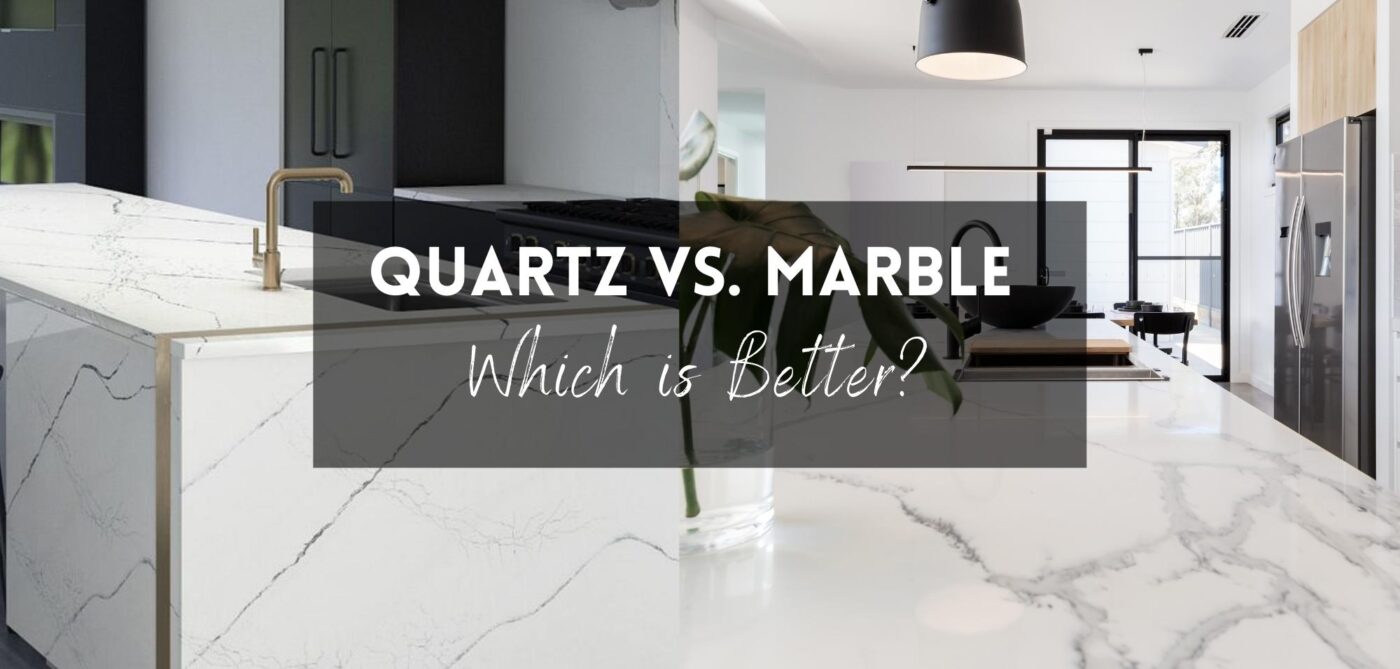When it comes to picking out new countertops for your kitchen, it can feel like there are a million options. Two of the most popular choices are quartz and marble. But how do you decide between the two? Let’s delve into the details of each to help you make an informed decision.
What is Quartz?
Quartz countertops are a type of engineered stone product that consists of about 85%-93% ground natural quartz combined with about 7%-15% polymer resins. This mixture creates a super-hard, durable material that is ideal for kitchen countertops.
Pros of Quartz Countertops
Durability: Quartz countertops are extremely durable and scratch-resistant. They’re also non-porous, which makes them resistant to staining and eliminates the need for sealing.
Design Versatility: Because quartz is an engineered product, it’s available in a wider range of colors and patterns than natural stone. You can even find quartz that mimics the look of natural stone, including marble.
No Maintenance: Quartz countertops are easy to clean using just soap and water, making them an excellent choice for busy kitchens.
Cons of Quartz Countertops
Heat Sensitivity: Although quartz is generally durable, it’s not as heat-resistant as natural stone. You’ll need to use heat pads or trivets when setting hot pots or pans on quartz countertops.
Scratch Resistance: Although quartz is made of 85%-93% real quartz, 7%-15% of the material is resin and polymers which can be scratched if enough downward force is asserted. We recommend cutting boards while using your new quartz countertop.
What is Marble?
Marble is a natural stone that is created from limestone that has been subjected to high pressures and temperatures. Its luxurious, unique look is characterized by the veining and swirls that result from mineral impurities.
Pros of Marble Countertops
Beauty: Marble is often considered the pinnacle of luxury when it comes to countertops. It has a classic, timeless appeal that can add value to your home.
Unique: Because marble is a natural stone, each slab is unique. You won’t find two marble countertops that are exactly alike.
Cons of Marble Countertops
Porous: Marble is a porous material, which makes it susceptible to stains, especially from acidic substances like wine or coffee. It requires regular sealing to maintain its beauty.
Scratches Easily: Marble is softer than some other countertop materials, so it can scratch more easily.
Quartz vs Marble: Which One to Choose?
The choice between quartz and marble will depend on your lifestyle, budget, and personal preference.
If you value durability, a wide range of design options, and low maintenance, then quartz could be the best choice for you. It’s an excellent choice for high-traffic kitchens.
On the other hand, if you love the unique, luxurious look of natural stone and don’t mind a bit of extra maintenance, then marble could be the right fit. Keep in mind, though, that marble requires a bit more care to keep it looking its best.
When choosing between quartz and marble, consider not only the look you’re going for but also what will best suit your lifestyle and the amount of use your kitchen sees on a daily basis. Either way, both quartz and marble make beautiful, high-quality countertops that can enhance any kitchen.


